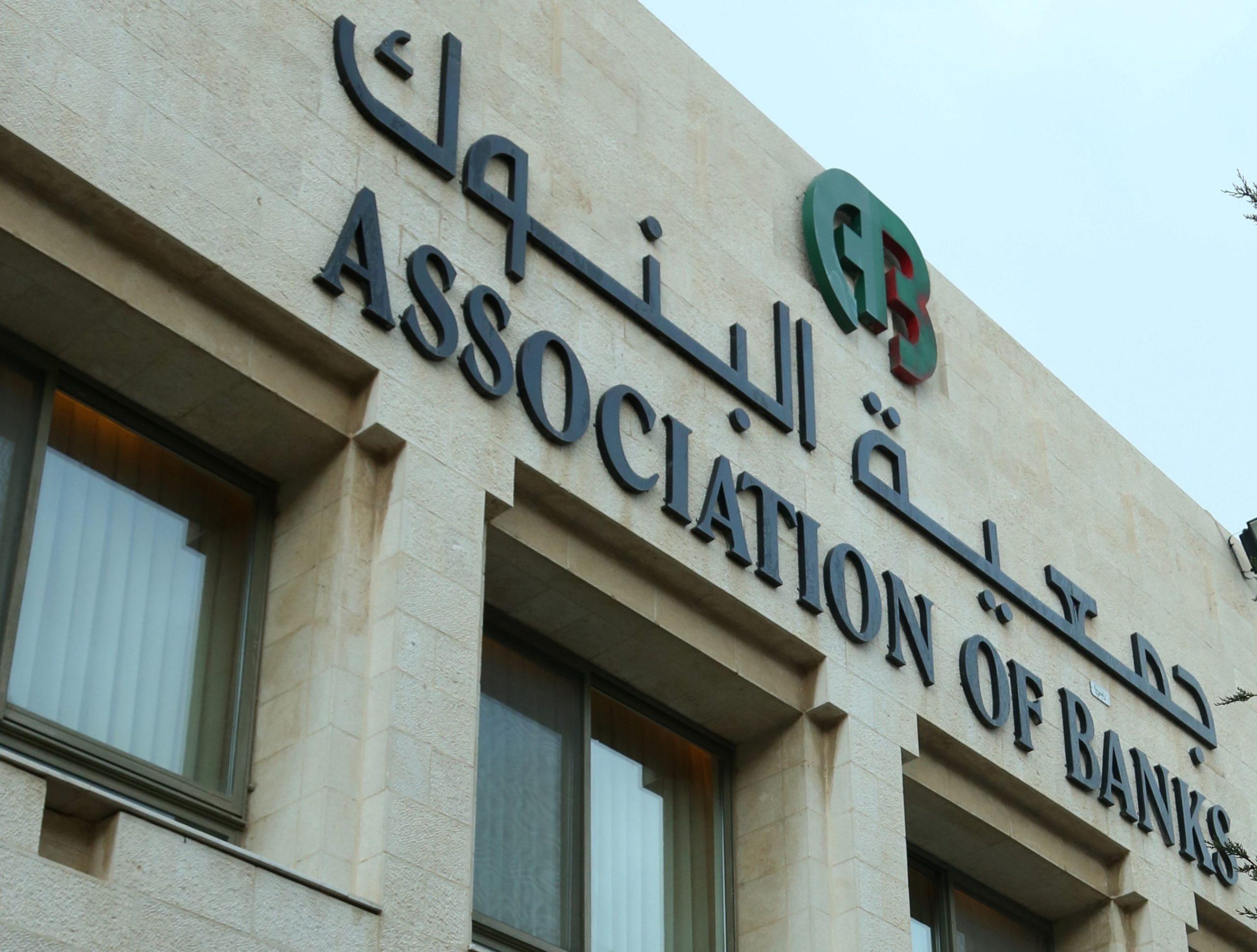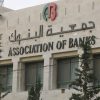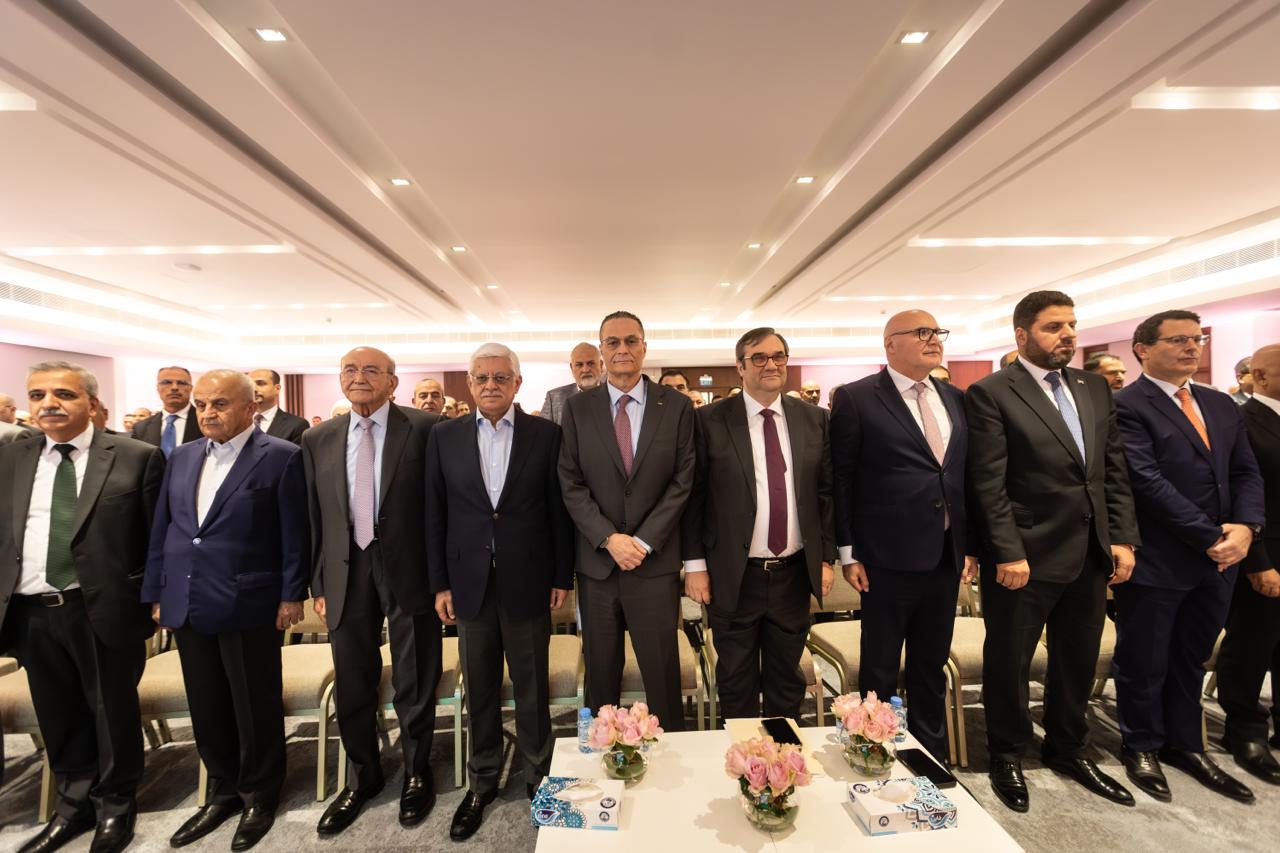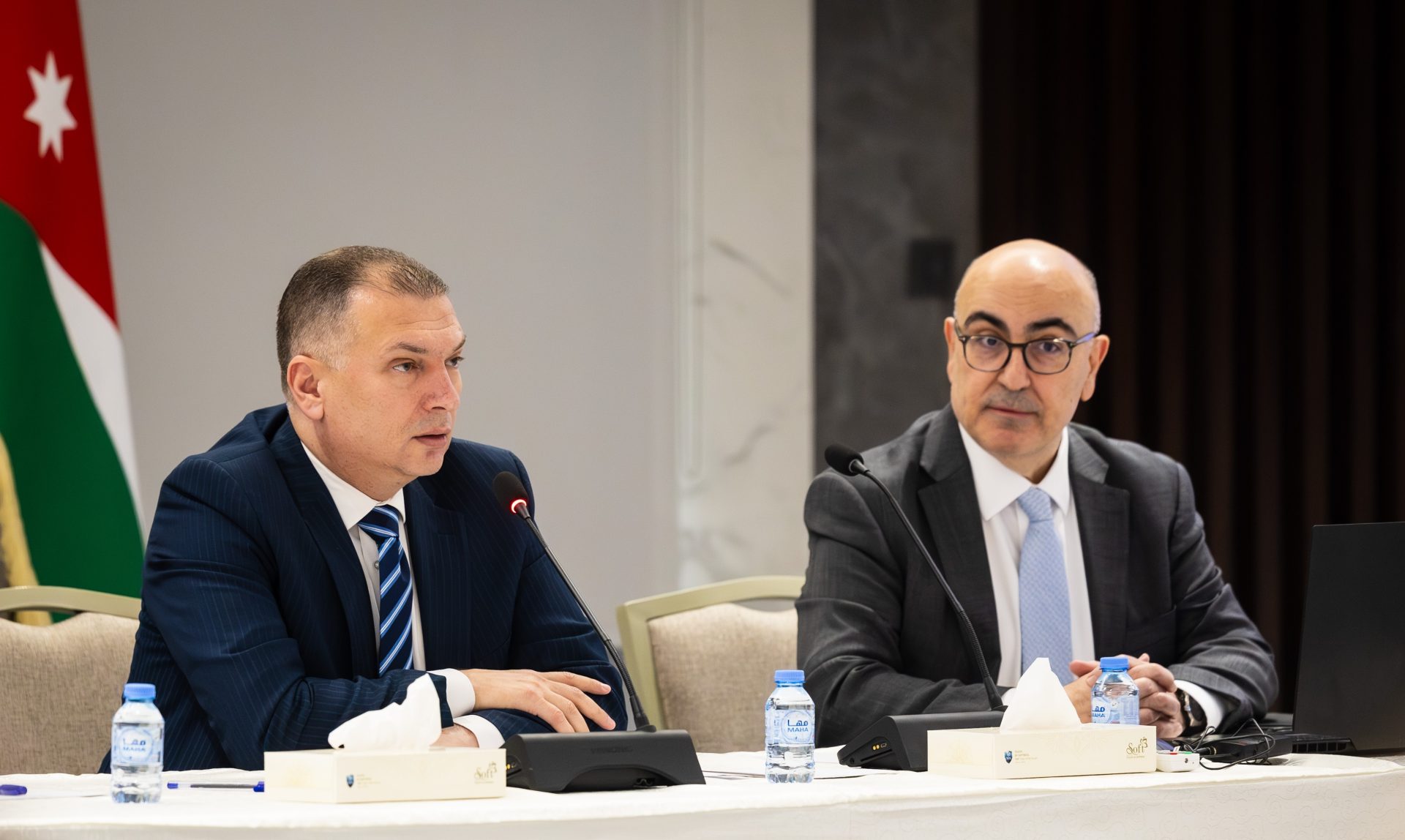
The World Union of Arab Bankers in cooperation with the ABJ organized the annual meeting of the Compliance Experts Group entitled “compliance with US and European anti-money laundering and terrorist financing law: implementing AMLA2020 and AMLD6 standards in the Arab banking sector”, which took place at the Grand Hyatt Hotel in Amman, during 30-31 August 2021.
The Director-General of ABJ, Dr. Maher Al-Mahrouq delivered a welcoming speech at the opening ceremony with the participation of Mr. Marwan Awad, member of the Board of Directors of the Union and Director-General General of International Consulting and Arbitration, Dr. Talal Abu Ghazaleh, President of Abu-Ghazaleh International Group, and Wissam Fattouh, Secretary General of the Union of Arab Banks and the World Union of Arab Bankers.
In his opening speech, Dr. Al-Mahrouq indicated that the meeting coincides with the issuance of the Anti-Money Laundering and Terrorist Financing Law for the year 2020 in Jordan which came within the framework of the Central Bank’s efforts to develop and advance levels of compliance in the Kingdom. He added that the law aims, according to its compelling reasons, to “meet the requirements of technical compliance with international standards in addition to expanding the scope of the categories covered by the provisions of the law.”
He stressed that the regulators’ strong and effective response to thwart financial crimes should not have unintended negative consequences on sustainable economic growth and should not harm public policies aimed at achieving financial inclusion, encouraging investment, providing job opportunities, facilitating trade and encouraging competition.
Dr. Al-Mahrouq stated that the world has recently witnessed a clear change in the forms and patterns of money laundering and terrorist financing criminal activities in light of the acceleration of technological development and digitization, the increase in the use of electronic channels to carry out financial transactions and the massive expansion of the number of users of digital banking services. He noted to the general features observed during the Covid-19 pandemic namely the change in criminal behavior, the trend towards specific economic activities and the increase in the use of technology in implementing criminal schemes.
Dr. Al-Mahrouq highlighted the major pandemic-related risks of money laundering and terrorist financing which included: an attempt to exploit flexibility in applying customers’ due diligence measures during the pandemic to access the financial system, misuse of financial services via the Internet and virtual assets to transfer and hide illegal funds, exploit Economic stimulus measures to hide and launder illicit proceeds, increase use of the unregulated financial sector and increase cash handling.
Dr. Al-Mahrouq added that this necessitated building effective response policies in the field of combating money laundering and terrorist financing including strengthening international cooperation to assess the impact of pandemic risks on AML/CFT systems, strengthening communication with the private sector, encouraging the use of a risk-based approach when applying customer due diligence and support electronic and digital payment systems and options. Dr. Al-Mahrouq also touched on the developments in anti-money laundering and terrorist financing laws and measures around the world noting that the US anti-money laundering act of 2020 included many measures aimed at preventing the use of technological developments as a means to carry out financial crimes. He also referred to the sixth directive to combat money laundering in the European Union, AMLD6, which came to enhance institutions’ role in combating money laundering and terrorist financing with regard to cyber-crimes.
On the other hand, Dr. Al-Mahrouq reviewed the Basel Anti-Money Laundering Index 2020 for the MENA region which shows that the average total risk was higher than the global average. He said that this came as a result of the high risk of sub-indicators related to the quality index of the AML/CFT framework, the bribery and corruption index, the public transparency and accountability index, and the legal and political risk index. He added that the only indicator showing a lower risk than the global average is the Financial Transparency and Standards Index.
It is noteworthy that the two-day meeting with the participation of a large number of experts and compliance managers in banks discussed a set of topics: the American Anti-Money Laundering Law (AMLA) of 2020, the Sixth Anti-Money Laundering Directive (6AMLD), the impact of developments related to US anti-money laundering laws on financial institutions, the most important changes in the field of combating money laundering and terrorist financing, policies and procedures for combating bribery and corruption, the repercussions of applying sanctions on banks and financial institutions and the use of informatics in the face of money laundering.





